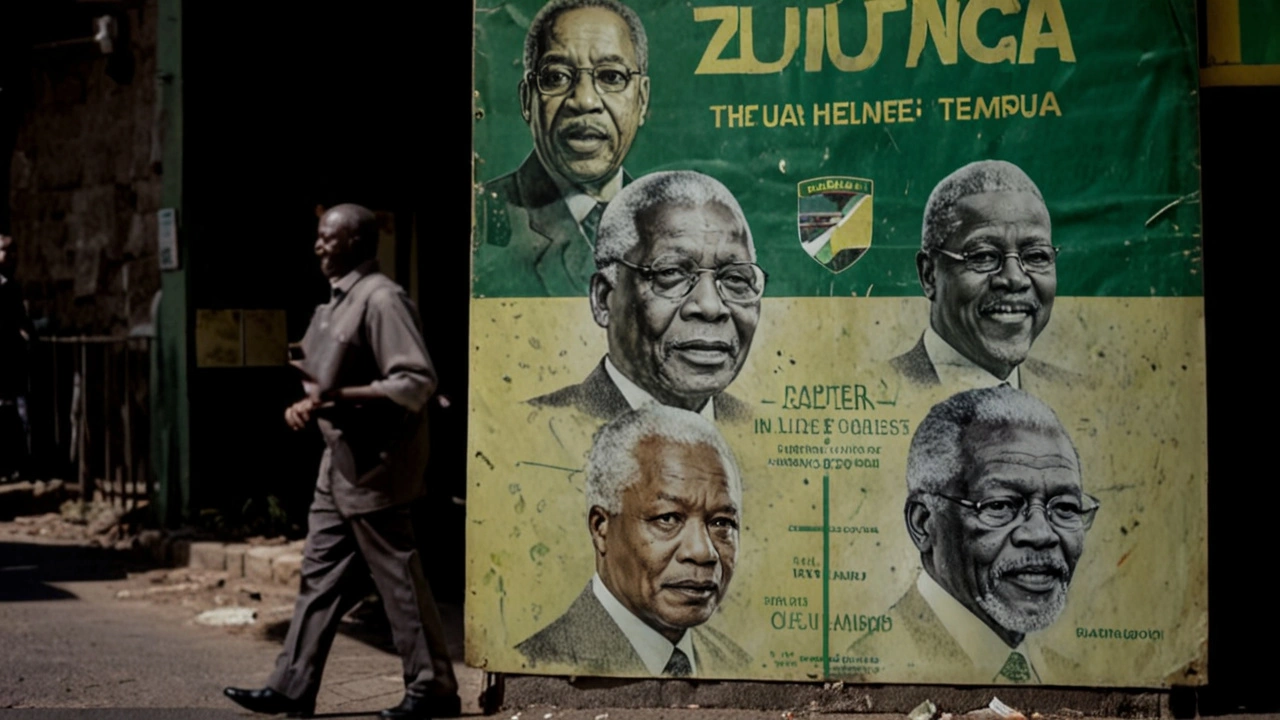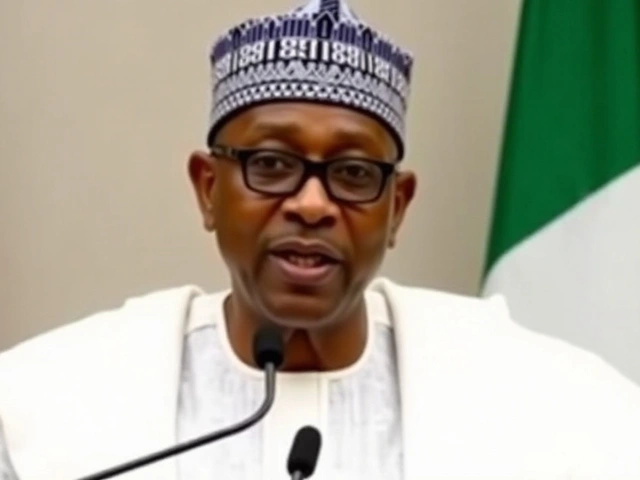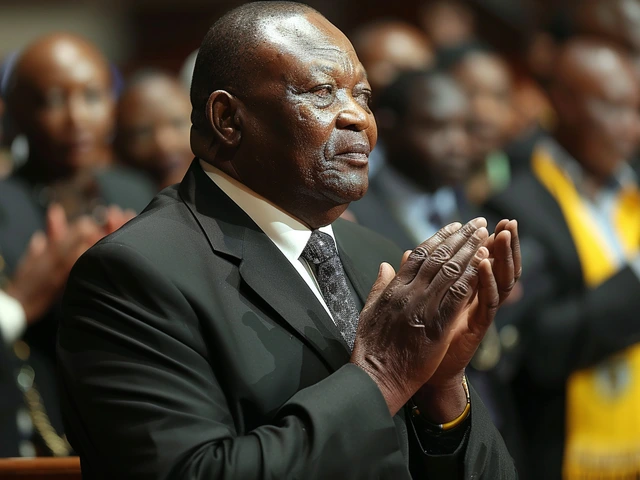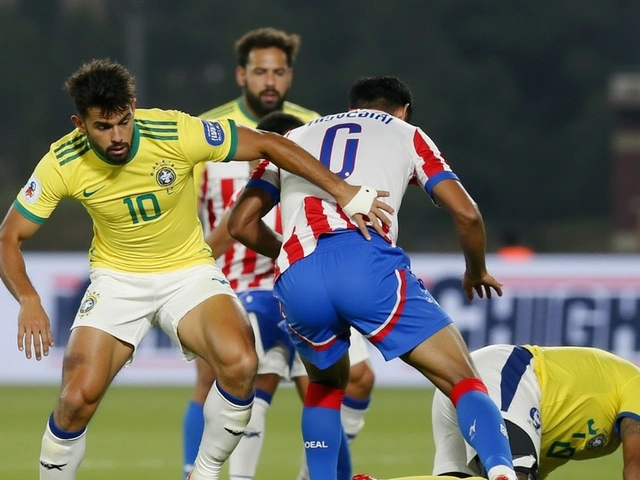Tony Yengeni to Defend Jacob Zuma in ANC Disciplinary Hearing
In a recent development that has added another layer of intrigue to South Africa’s political landscape, former President Jacob Zuma has named Tony Yengeni as his representative in an upcoming disciplinary hearing with the African National Congress (ANC). This decision follows Zuma’s controversial endorsement of the MK Military Veterans Association, an action that triggered the party’s disciplinary mechanisms.
Yengeni, a former member of the ANC National Executive Committee (NEC) and a well-known struggle activist, has long been recognized for his actions from the apartheid era and intense loyalty to Zuma. This appointment underscores the strong bonds and alliances that continue to shape the dynamics within the ANC, South Africa’s ruling party.
The disciplinary hearing arises from Zuma's outspoken support for the MK Military Veterans Association. The association has been a vocal group within the ANC, often siding with Zuma and articulating grievances over issues ranging from policy to the treatment of veterans. Zuma’s endorsement was seen by some within the party as a step too far, potentially undermining party unity and discipline. Hence, the disciplinary process was invoked to address this breach.
Yengeni's appointment as Zuma’s representative is not surprising given his history within the ANC and his personal loyalty to the former president. Yengeni has a checkered history himself; he was once a central figure in the ANC and known for his fiery rhetoric and passionate defense of his party and its leaders. Over the years, he has faced his own share of legal and ethical challenges, but his loyalty to Zuma has remained steadfast throughout.
Zuma’s decision to appoint Yengeni can be interpreted through multiple lenses. On one hand, it reflects a strategic move, utilizing an ally who understands the intricacies of the ANC’s inner workings and can navigate these troubled waters skillfully. On the other hand, it highlights the persisting fractures and factions within the ANC, where loyalty and historical ties often play a crucial role in the unfolding political narrative.
The ANC’s disciplinary hearing process is expected to be closely watched by both ANC members and the public at large. Given Zuma’s influential position in South African politics, the outcome of this hearing could have far-reaching implications for the party and the country. Supporters of Zuma believe that the measure is a politically motivated attempt to stifle voices of opposition and figures seen as too rebellious within the party ranks.
This hearing adds to the list of legal challenges that Zuma is currently facing. The former president has been entangled in numerous legal battles, ranging from corruption charges to allegations of state capture, since he left the highest office in the land. Yengeni's role in the upcoming hearing is likely to be a rigorous defense, one that will draw upon his extensive experience and perhaps even exploit perceived flaws in the party’s disciplinary procedures.
The broader implications of this disciplinary hearing cannot be overlooked. The ANC's ability to handle internal dissent and disciplinary matters is critical to its unity and effectiveness as a governing party. How it deals with high-profile figures like Zuma could set precedents for future disciplinary actions and define the boundaries of acceptable political conduct within the party.
In Yengeni, Zuma has a representative who is not just a legal figure but a seasoned political warrior, someone who has shared the frontlines of the struggle against apartheid and the various battles within the ANC. This makes the hearing not just a legal showdown but a symbolic confrontation over the values and direction of the ANC.
As the disciplinary proceedings get underway, all eyes will be on how Yengeni navigates this politically charged environment. His approach and the hearing's outcome could very well impact the ANC’s internal cohesion and its public perception, playing a significant role in shaping the future political landscape of South Africa.
With this high-stakes scenario unfolding, the ANC has a challenging task ahead—balancing internal discipline with the potential fallout from sanctioning such a prominent figure. For Zuma and his supporters, this hearing will be seen as another battle in a long series of political and legal skirmishes, a chance to defend their stance and challenge the party’s leadership. For Yengeni, it’s another significant chapter in his storied career, further deepening his legacy within South African politics.







Subhash Choudhary
July 18, 2024 AT 19:51 PMJust another day in ANC politics, huh? Yengeni's loyalty to Zuma is practically legendary, and you can see why Zuma went straight to him for a legal shield.
Ethan Smith
July 22, 2024 AT 07:11 AMThe appointment is unsurprising given Yengeni's deep roots in the party. It's a strategic choice that leverages his intimate knowledge of internal disciplinary mechanisms. Nonetheless, the optics may raise concerns about impartiality.
Evelyn Monroig
July 25, 2024 AT 18:31 PMWake up, folks! This is nothing but a staged coup orchestrated by the hidden cabal that wants to keep Zuma silenced. They’re using “disciplinary” as a smokescreen for a power grab, and Yengeni is just a pawn in their game.
Gerald Hornsby
July 29, 2024 AT 05:51 AMWow, drama unfolds! Yengeni stepping back into the ring feels like a sequel nobody asked for. 😜
Hina Tiwari
August 1, 2024 AT 17:11 PMI feel like ths is a big bummer for the ANC, its alot of people will see this as more politcal war. Yengeni is a big figure, but his past rrecords cant be ignored.
WILL WILLIAMS
August 5, 2024 AT 04:31 AMYesss! This is the kind of high‑octane political theater we love. Yengeni’s firebrand spirit could turn the hearing into a spectacular showdown.
Barry Hall
August 8, 2024 AT 15:51 PMSounds like a classic power play 😊.
abi rama
August 12, 2024 AT 03:11 AMSeeing Yengeni take the stand reminds us that loyalty still runs deep in the ANC. Even if the outcome is uncertain, this move shows that alliances matter more than headlines.
Megan Riley
August 15, 2024 AT 14:31 PMWow!!! This is such a pivotal moment,,, the party’s future hangs in the balance,,, and yet we keep hearing the same old stories,, about power and influence,, you know???
Lester Focke
August 19, 2024 AT 01:51 AMThe selection of Tony Yengeni as Jacob Zuma’s legal advocate is emblematic of a broader strategy predicated upon entrenched factionalism within the African National Congress. From an institutional perspective, such an appointment underscores the pervasive reliance on historical loyalties over procedural impartiality. Yengeni’s storied involvement in the liberation struggle furnishes him with a moral capital that the Zuma camp seeks to leverage. Nevertheless, his own record of disciplinary infractions raises questions regarding his suitability for a role that demands scrupulous adherence to party statutes. The ANC’s disciplinary apparatus, ostensibly designed to enforce cohesion, appears increasingly compromised by internecine power struggles. By invoking Yengeni, Zuma signals an intent to contest the legitimacy of the proceedings through a veneer of seasoned advocacy. Critics argue that this maneuver may further entrench divisions rather than ameliorate them. The hearing will inevitably become a litmus test for the ANC’s capacity to police its senior echelon. Should the disciplinary body render a harsh sanction, it may set a precedent for curbing the influence of entrenched veterans. Conversely, a lenient outcome could embolden other factions to challenge procedural norms with equal vigor. Observers must also consider the symbolic resonance of a former liberation commander defending a former president. This dynamic reverberates beyond internal party mechanics, echoing into South Africa’s broader democratic discourse. Moreover, the public perception of the ANC’s internal justice system will be shaped by the transparency and fairness exhibited in this case. In sum, the Yengeni–Zuma alliance encapsulates the tension between historical allegiance and contemporary governance imperatives. The ultimate verdict will invariably inform the trajectory of the party’s internal democracy for years to come.
Naveen Kumar Lokanatha
August 22, 2024 AT 13:11 PMHonestly i think this isnt just about Zuma it's about the whole system being stuck in old ways we need fresh perspective not just old heroes stepping back into power
Alastair Moreton
August 26, 2024 AT 00:31 AMWell, that's a typical ANC drama – predictable, noisy, and hardly surprising. They've been doing this for ages.